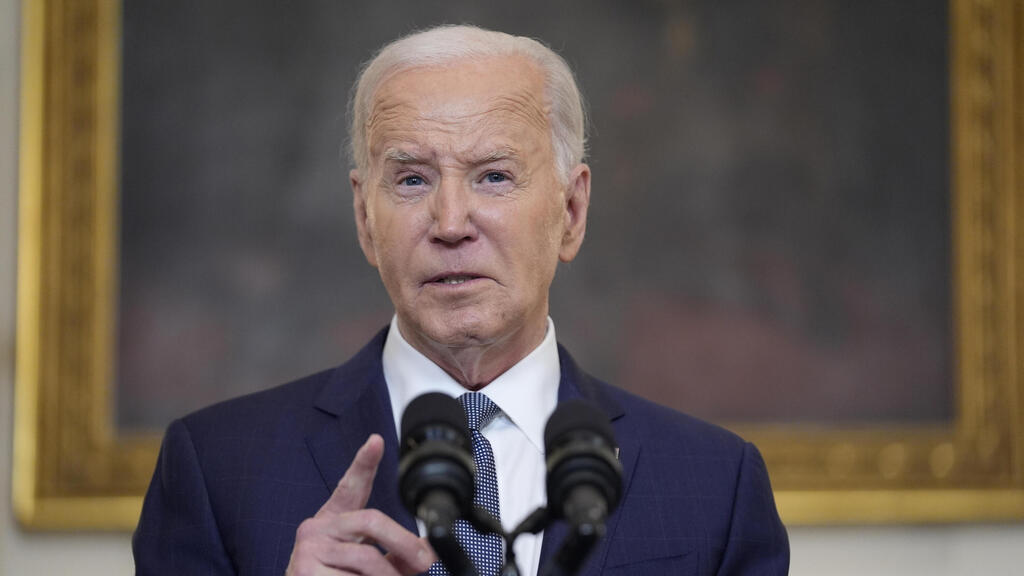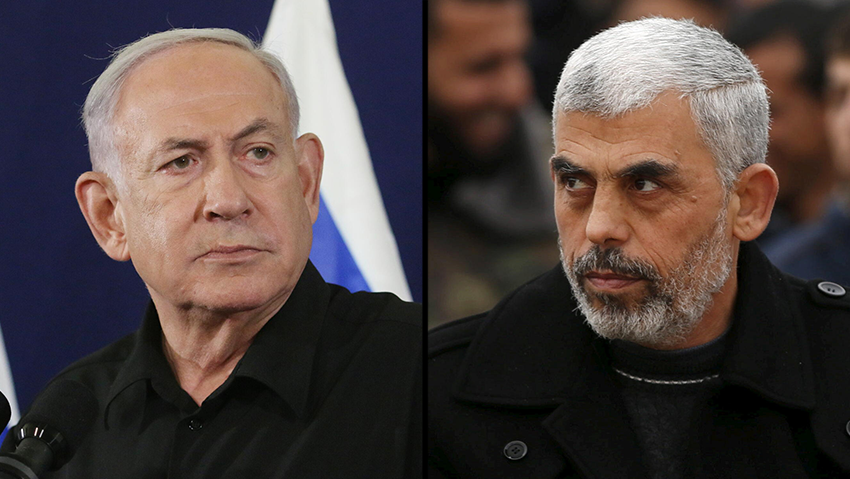Getting your Trinity Audio player ready...
U.S. President Joe Biden present proposed end to war
(Reuters)
In his speech on Friday U.S. President Joe Biden made it clear that the far-reaching proposal to end the war in Gaza and return all Israeli hostages home was agreed upon jointly by Israel and the U.S. making it harder for Hamas to reject it but even more so, making it harder for the Arab mediators to do anything but support it.
By Hamas rejecting the proposal or attempting to delay it, the terror group may find that by refusing the American offer, backed by the West, it would also compel Qatar, which does not want to risk its special relations with the U.S., to take an opposing view. Having received the message, Hamas quickly said in a statement, that it had a "positive view," of the possible deal.
At this point, I chose not to delve into the proposal's details. I think any public discussion can only put its success at risk. Anyone hearing or reading it can see that it involves significant compromise on the part of Israel but preserves its security interests and its humanity.
Even the statement issued by the Prime Minister's Office following Biden's 7-min. address on the matter, was superfluous and was meant to appease Netanyahu's far-right base and his extremist coalition partners. The PMO said Israel maintains its principle aim to return the hostages and eliminate the Hamas rule.
But ministers in his government, politicians of all stripes and pundits in the media must this time remain silent and not endanger what could be the fateful opportunity to free the hostages and risk an Israeli defeat.
Biden's speech although strange and slightly disappointing in its wording, achieved its purpose. It placed Hamas in a dilemma and showed the International community that Israel has in fact, shown the willingness and flexibility needed, to end the war, providing the government with a critical legitimacy.
It is easy to see why Prime Minister Benjamin Netanyahu himself, did not make that speech. Biden evidently, fears the prime minister's far-right coalition members less.
The proposal the president laid out in his speech is made up of three phases. During the first phase, a ceasefire would begin, lasting for six weeks, Israeli forces would withdraw from Gaza population centers, and hostages, including the elderly and women, would be exchanged for hundreds of Palestinian prisoners. Palestinian civilians would return to Gaza, including northern Gaza, and 600 trucks would bring humanitarian aid into Gaza each day.
In the second phase, all remaining hostages would be freed in exchange for Palestinian prisoners and Hamas and Israel would negotiate terms for a permanent end to hostilities. "The ceasefire will continue as long as negotiations continue," the president said, a new development.
 Ron Ben YishaiPhoto: Courtesy
Ron Ben YishaiPhoto: CourtesyThe third phase would include a major reconstruction plan for Gaza that moderate Arab states would finance.
The president said the proposal was possible after Israel effectively weakened Hamas that can not longer repeat the atrocities of October 7.






